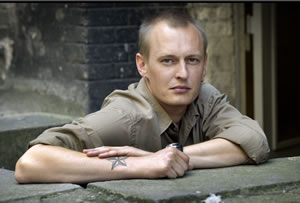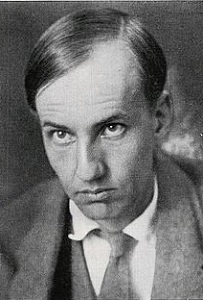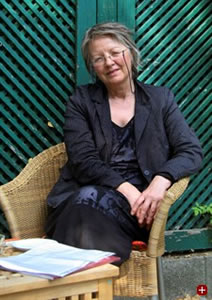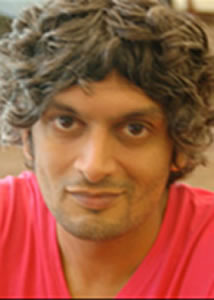De Deense schrijver en journalist Jakob Ejersbo werd geboren in Rødovre op 6 april 1968. Zie ook mijn blog van 6 april 2009.
Uit: Exile (Vertaald door Don Bartlett)
„A metre and a half above me, as I kick off from the sandy bottom with my flippers, the surface of the water is living silvery blue. I turn onto my back and see the luminous underside of the small waves through my goggles. At my approach the small fish silently flee into the coral on the sea bed. It’s over. The summer holidays have come to an end. We’re going to drive my elder sister Alison to Kilimanjaro Airport – she’s catching the plane to England. In a few days I’ll be back at boarding school; without Alison. I kick my way to the surface and suck in air. The world is noisy. I remove my goggles and blink under the water. Salt water – so that no one can see I have been crying.
I walk up the slope. Baobab Hotel is shrouded in silence – the main building with the reception area and the restaurant; bungalows scattered between the baobab trees. We don’t have many guests. Alison is at home packing. She’s going to live with my father’s sister and study hotel management at a school in Birmingham for six months, after which she will do her practical training at a hotel. I lean against the door frame to her bedroom.
‘Are you going to leave me all alone with the codgers?’ I ask.
‘Yes,’ says Alison.
‘They’ll do my head in,’ I say.
‘I’ve got to learn something,’ Alison says. Dad passes in the corridor. I turn my head after him.
‘I haven’t seen England for three years. We’ve lived here for twelve – I’ll end up as a Tanzanian,’ I say aloud. He continues on down the corridor.
‘You’ll get to England soon enough,’ he says without looking back.
‘I bloody need to go now,’ I say. Dad pulls up and eyes me.
‘Calm down now,’ he says. ‘I told you not to swear at home. You can go and visit Alison next year.’

Jakob Ejersbo (6 april 1968 – 10 juli 2008)
Lees verder “Jakob Ejersbo, John Pepper Clark, Günter Herburger, Uljana Wolf”



